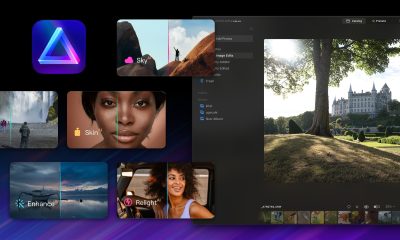Side Hustles
Why the Future of Cybersecurity Marketing Relies on Trust

Entrepreneur
Cybersecurity marketing is changing rapidly, and the reason can be simplified down to a single word: trust. With improving technology, cybercrime is becoming more complex, and corporations must present themselves as not only solution providers but rather reliable guardians of clients’ most valuable assets. It’s no wonder that trust has become the bedrock of marketing in the cybersecurity industry over time.
Why trust is so important in cybersecurity marketing
Trust is important to any business, but the element of trust is critical in cybersecurity. The clients are not buying a physical product; they are buying a guarantee of safety. Decision-makers such as the CISO, CTO, and others need to be assured that the cybersecurity service provider they are looking at is able to grasp and respond to emerging threats.
Traditional marketing methods often fail to build this level of trust. Flashy ads and mass campaigns now feel overtly insincere, especially in a domain where sincerity is crucial. Prospects now need to have a high level of rapport with a company before even considering a demo, let alone becoming a customer. This is where the value of content marketing has risen as an effective approach.
Companies can demonstrate some level of thought leadership and credibility by providing educational resources like articles, case studies, webinars, whitepapers, etc. This shows that they grasp the evolving nature of cyber threats, which helps gain potential clients’ trust.
Related: 7 Marketing Strategies to Help Your Startup Grow and Scale
Challenges of traditional advertising in cybersecurity
While many cybersecurity companies still use traditional advertising, it’s proving more and more to be less and less effective in today’s market. Audiences are overwhelmed with ads, leading to extreme “ad fatigue,” where potential customers ignore these messages, making it harder for brands to stand out and establish credibility.
Moreover, people have become more skeptical of advertisements, often seeing them as exaggerated or misleading. This skepticism can be very damaging in cybersecurity, where trust is crucial. Instead of relying on ads, decision-makers turn to recommendations from peers or trusted industry experts. This is where influencer marketing becomes invaluable.
Related: Marketing Campaigns Must Do More than Drive Clicks — Here’s How to Craft Landing Pages That Convert Clicks into Customers
The power of influencer marketing
Influencers have emerged as powerful voices because they’ve built authentic relationships with their followers and, in many cases, opted-in subscribers. For cybersecurity companies, partnering with these influencers means tapping into that established trust and reaching an audience far more receptive to their message.
Finding the right influencers: The challenges
Finding the right influencers in the cybersecurity space isn’t easy. Unlike other industries, cybersecurity is complex and demands high expertise. For this reason, companies need to be very selective about whom they partner with. It’s not just about the influencer’s following; their audience should consist of decision-makers genuinely interested in cybersecurity solutions. Furthermore, the influencer must have credibility and a history of discussing relevant topics accurately.
Vetting influencers is a time-consuming process that involves analyzing their content and engagement rates and verifying their audience’s authenticity. A poor match can be costly, wasting marketing spend and potentially harming a brand’s reputation.
Using platforms to streamline influencer marketing
Given these challenges, many companies are turning to platforms that specialize in influencer marketing to simplify the process. These platforms vet influencers and provide data-driven insights to ensure that brands are matched with the most relevant voices. That’s where platforms like Presspool.ai, which I founded, come in — simplifying and streamlining the process.
These platforms use advanced analytics to connect cybersecurity companies with verified influencers, engaging high-intent audiences. By leveraging data, these platforms match brands with influencers whose audience perfectly aligns with their target market, such as CISOs, CTOs, or other decision-makers. This approach removes the guesswork and allows brands to build authentic partnerships, making influencer marketing both scalable and efficient.
How influencer marketing drives results in cybersecurity
When executed correctly, influencer marketing can be incredibly powerful for cybersecurity brands. It allows them to reach high-intent audiences—people actively seeking solutions—who are more likely to engage. The key is that these audiences are hearing about your solution from someone they already trust, which significantly accelerates the sales cycle.
For instance, when a respected influencer in the cybersecurity field endorses a product, their followers are immediately intrigued. They’re more likely to click through, read the content, and genuinely consider the solution. This level of engagement is rarely achieved through traditional advertising.
Moreover, influencers help educate potential clients, breaking down complex topics in a way that resonates with their audience. This not only builds trust but also positions the brand as a credible authority in the space.
Why data and technology matter
As with any marketing strategy, measuring ROI is crucial. This is where data-driven platforms like Presspool.ai become invaluable. By providing real-time analytics on campaign performance, engagement rates, and conversions, these platforms allow companies to see exactly how their influencer partnerships are driving results.
The ability to track and optimize campaigns in real-time allows brands to adapt quickly, ensuring they’re always getting the best possible return on investment. This combination of data-driven insights and authentic influencer partnerships sets the stage for the future of cybersecurity marketing.
Related: AI Might Know What You Are Feeling Before You Even Do — Here’s How AI Can Help Us With Client Feedback
As the digital landscape continues to evolve, cybersecurity companies must adapt their marketing strategies to avoid becoming irrelevant. Traditional advertising methods are rapidly losing effectiveness, and buyers are seeking more authentic, trusted voices.
By embracing influencer marketing and leveraging platforms that streamline the process, cybersecurity brands can connect with their target audience in a way that’s both genuine and impactful. It’s not about replacing traditional methods entirely but rather integrating a more nuanced, trust-based approach that resonates with today’s discerning buyers.
In an industry where trust is the foundation of every decision, I’ve seen first hand that building relationships through influencer marketing isn’t just a trend — it’s the future.
Read the full article here

-

 Personal Finance7 days ago
Personal Finance7 days agoTop personal finance New Year's resolutions for 2025
-

 Passive Income5 days ago
Passive Income5 days agoJoin the Highest-Growing Industry in 2025 With This $60 Cybersecurity E-Learning Bundle
-

 Side Hustles3 days ago
Side Hustles3 days agoAI Agents Are Becoming More Humanlike — and OpenAI Is Launching a New One in January. Are Entrepreneurs Ready to Embrace the Future?
-

 Passive Income3 days ago
Passive Income3 days agoSending A Last-Minute Marketing Email? Follow This 7-Step Checklist to Avoid Making These Costly Mistakes
-

 Side Hustles7 days ago
Side Hustles7 days agoIn-Person Shopping Made a Comeback This Holiday Season: Report
-

 Investing7 days ago
Investing7 days agoThe Most Popular Retirement Cities in the US: 2024 Data
-

 Make Money6 days ago
Make Money6 days agoHow to Make Money with Print on Demand: A Step-by-Step Guide
-

 Passive Income7 days ago
Passive Income7 days ago8 Ways to Unlock the Hidden Potential of Your Employees


















